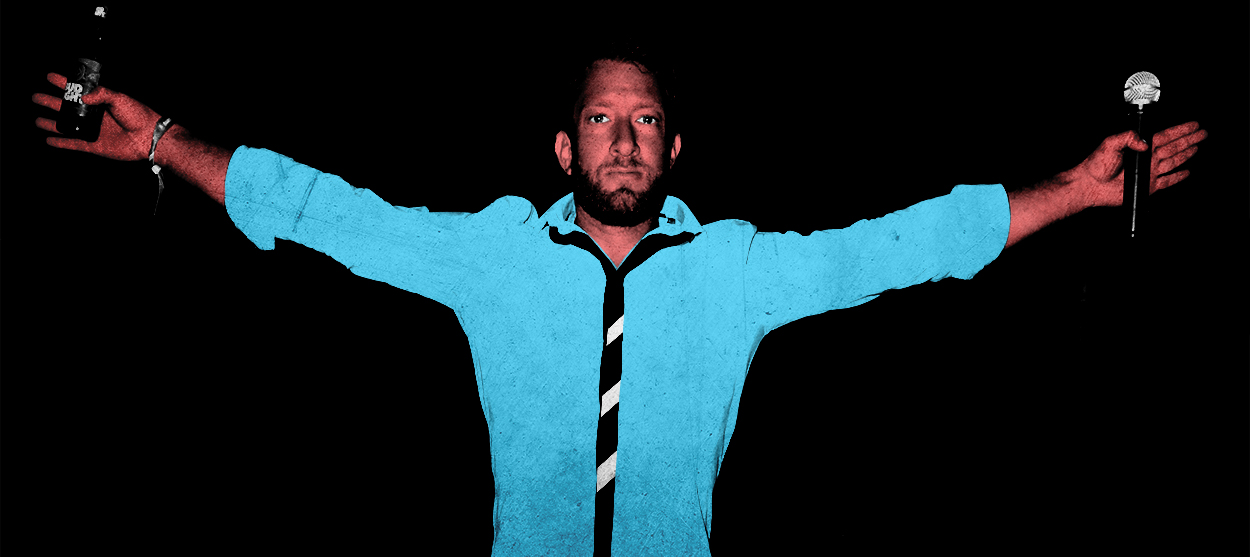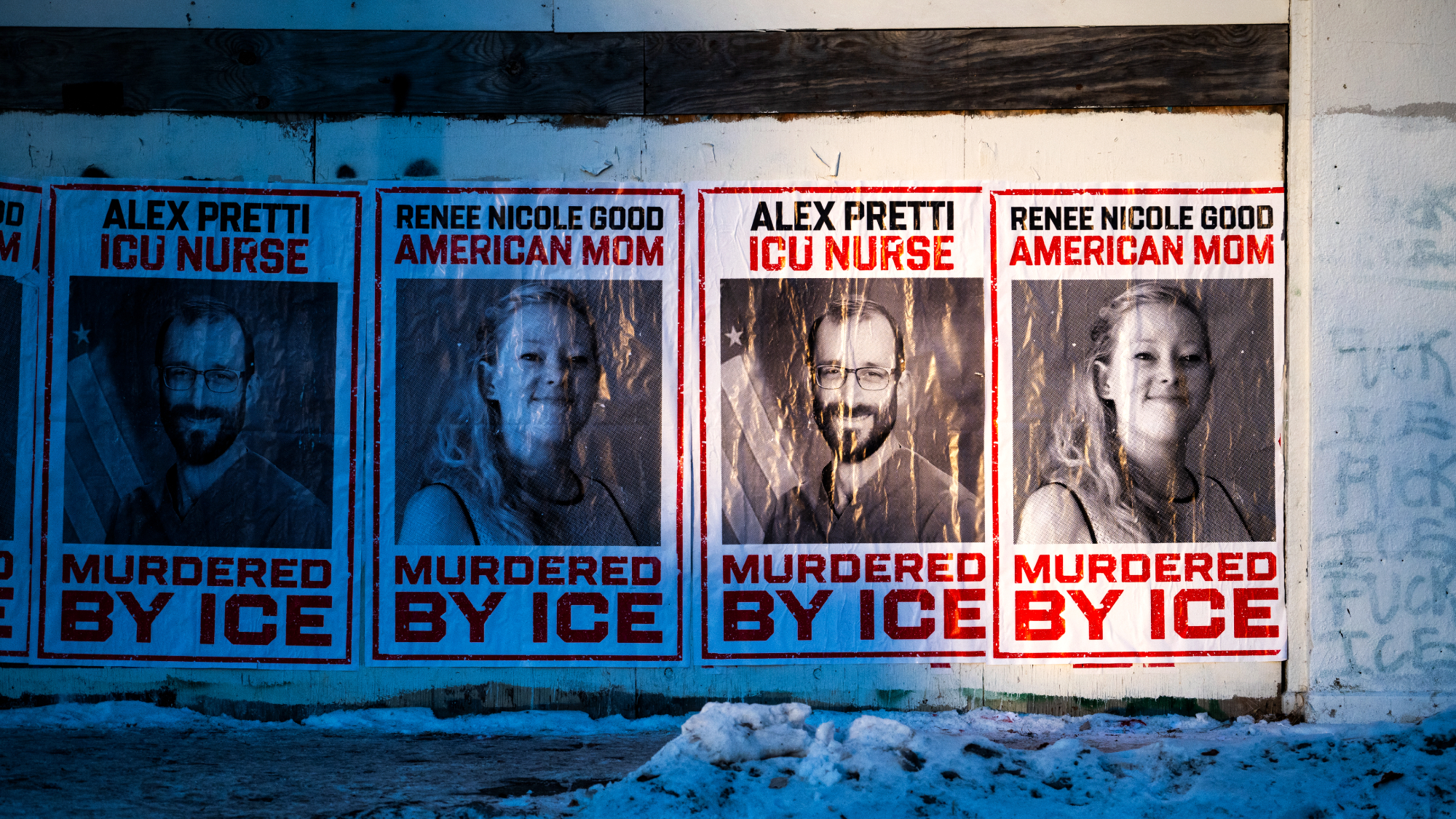Rise of the Barstool conservatives
Dave Portnoy is the future of the conservative movement


Over the coming months, hundreds of thousands of words will be written about Donald Trump's presidency and the future of the Republican Party. This seems to me a mostly fruitless endeavor, not least because the relationship between Trump and his adopted party was very publicly transactional. He used the GOP to win the White House with very little help from the institutional party, whose leaders abandoned him on the eve of two successive general elections, and they were happy to allow him to appoint 234 judges to the federal bench and sign one tax bill in the first year of his administration. Trump will disappear from the political considerations of Republican elected officials as swiftly as he entered them on the fateful day of the escalator.
A more interesting question is what effect Trump had upon the so-called "conservative movement," that somewhat more nebulous entity, with its magazines, its think tanks and conferences, its canons of half-understood books, its pantheons of gods and heroes. Despite what some have argued, the movement and its institutions have never been synonymous with the Republican Party, which tacitly made its peace with the New Deal when the oldest living Americans were children. What the movement offered the party instead was a kind of geological survey: a map of the sedimentary layers in American political life, and the potential riches waiting to be unearthed by skillful miners of right-wing public opinion.
Like many observers, including an enormous number of the president's loudest detractors, I believe that Trump brought the conservative movement to an end. But what its destruction means is something very different from the prophecies of permanent Democratic supermajorities issuing forth from the former president's critics. Trump's greatest achievement, one that speaks far more than his actual record in office to his business acumen, was recognizing that in the 2012 presidential election, the old movement vein had been exhausted and that a much richer one was awaiting exploration.
The Week
Escape your echo chamber. Get the facts behind the news, plus analysis from multiple perspectives.

Sign up for The Week's Free Newsletters
From our morning news briefing to a weekly Good News Newsletter, get the best of The Week delivered directly to your inbox.
From our morning news briefing to a weekly Good News Newsletter, get the best of The Week delivered directly to your inbox.
What Trump recognized was that there are millions of Americans who do not oppose or even care about abortion or same-sex marriage, much less stem-cell research or any of the other causes that had animated traditional social conservatives. Instead he correctly intuited that the new culture war would be fought over very different (and more nebulous) issues: vague concerns about political correctness and "SJWs," opposition to the popularization of so-called critical race theory, sentimentality about the American flag and the military, the rights of male undergraduates to engage in fornication while intoxicated without fear of the Title IX mafia. Whatever their opinions might have been 20 years ago, in 2021 these are people who, with varying degrees of enthusiasm, accept pornography, homosexuality, drug use, legalized gambling, and whatever GamerGate was about. On economic questions their views are a curious and at times incoherent mixture of standard libertarian talking points and pseudo-populism, embracing lower taxes on the one hand and stimulus checks and stricter regulation of social media platforms on the other.
I have come to think of the people who answer to the above description as "Barstool conservatives," in reference to the popular sports website, especially its founder and CEO, Dave Portnoy. For many years the political significance of Barstool was implicit at best, reflected mainly in its conflicts with Deadspin and other members of the tacitly liberal sports journalism establishment.
But in the last year, as Portnoy emerged as one of America's most visible critics of the lockdown policies instituted by virtually every state governor, it became clear to me that more so than anyone else he embodied the world view of millions of Americans, who share his disdain for the language of liberal improvement, the hectoring, schoolmarmish attitude of Democratic politicians and their allies in the media, and, above all, the elevation of risk-aversion to the level of a first-order principle by our professional classes. This, I suspect, is why in the last 24 hours I have received several text messages asking me whether I thought he had any interest in running for president. (My guess is no, though I also believe that his prospects for electoral success would be decent.)
Regardless of Portnoy's own ambitions, I fully expect the future of the Republican Party to belong to Barstool conservatives, which is to say, to a growing but so far almost invisible coalition that could very well carry the White House. The Barstool conservative movement will not have institutions in any recognizable sense, certainly not think tanks or highbrow magazines, but it will be larger, more geographically disparate, younger, and probably more male. It will also, I suspect, be more racially diverse, much like the portion of the electorate that gave Trump 74 million votes in 2020.
A free daily email with the biggest news stories of the day – and the best features from TheWeek.com
Where will Barstool conservatism leave what remains of the old conservative movement? In the case of free market dogmatists, I believe there is almost zero daylight between them. The policy papers on why blockchain-enabled futures markets in organ donation brought to you by ManScaped will revitalize Dayton, Ohio, will write themselves. Meanwhile, a small number of earnest social conservatives will be disgusted. But I suspect that a majority of them will gladly make their peace with the new order of things.
This is in part because while Barstool conservatives might regard, say, homeschooling families of 10 as freaks, they do not regard them with loathing, much less consider their very existence a threat to the American way of life as they understand it. Social conservatives themselves have largely accepted that, with the possible exception of abortion, the great battles have been lost for good. Oberfegell will never be overturned even with nine votes on the Supreme Court. Instead the best that can be hoped for is a kind of recusancy, a limited accommodation for a few hundred thousand families who cling to traditions that in the decades to come will appear as bizarre as those of the Pennsylvania Dutch.
Matthew Walther is a national correspondent at The Week. His work has also appeared in First Things, The Spectator of London, The Catholic Herald, National Review, and other publications. He is currently writing a biography of the Rev. Montague Summers. He is also a Robert Novak Journalism Fellow.
-
 Trump, Senate Democrats reach DHS funding deal
Trump, Senate Democrats reach DHS funding dealSpeed Read The deal will fund most of the government through September and the Department of Homeland Security for two weeks
-
 Political cartoons for January 30
Political cartoons for January 30Cartoons Friday's political cartoons include redacted rolls, a CBS snafu, and fascist fashion
-
 Getting behind the wheel of the Dacia Duster in the Agafay Desert
Getting behind the wheel of the Dacia Duster in the Agafay DesertThe Week Recommends An off-road adventure in Morocco provided the perfect opportunity to test drive the newly launched hybrid SUV
-
 The billionaires’ wealth tax: a catastrophe for California?
The billionaires’ wealth tax: a catastrophe for California?Talking Point Peter Thiel and Larry Page preparing to change state residency
-
 Bari Weiss’ ‘60 Minutes’ scandal is about more than one report
Bari Weiss’ ‘60 Minutes’ scandal is about more than one reportIN THE SPOTLIGHT By blocking an approved segment on a controversial prison holding US deportees in El Salvador, the editor-in-chief of CBS News has become the main story
-
 Has Zohran Mamdani shown the Democrats how to win again?
Has Zohran Mamdani shown the Democrats how to win again?Today’s Big Question New York City mayoral election touted as victory for left-wing populists but moderate centrist wins elsewhere present more complex path for Democratic Party
-
 Millions turn out for anti-Trump ‘No Kings’ rallies
Millions turn out for anti-Trump ‘No Kings’ ralliesSpeed Read An estimated 7 million people participated, 2 million more than at the first ‘No Kings’ protest in June
-
 Ghislaine Maxwell: angling for a Trump pardon
Ghislaine Maxwell: angling for a Trump pardonTalking Point Convicted sex trafficker's testimony could shed new light on president's links to Jeffrey Epstein
-
 The last words and final moments of 40 presidents
The last words and final moments of 40 presidentsThe Explainer Some are eloquent quotes worthy of the holders of the highest office in the nation, and others... aren't
-
 The JFK files: the truth at last?
The JFK files: the truth at last?In The Spotlight More than 64,000 previously classified documents relating the 1963 assassination of John F. Kennedy have been released by the Trump administration
-
 'Seriously, not literally': how should the world take Donald Trump?
'Seriously, not literally': how should the world take Donald Trump?Today's big question White House rhetoric and reality look likely to become increasingly blurred
